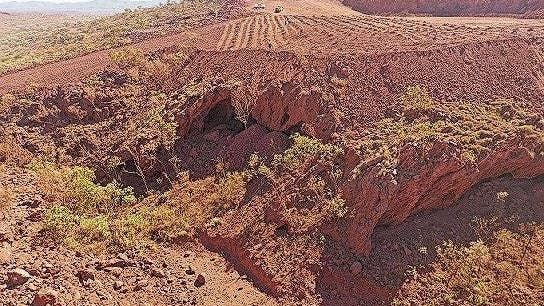Australia
Questionable but allowed: Mining company blasts important sacred site for mining purposes
The boss of the mining company Rio Tinto has to leave after exploding the cultural base of the indigenous people in Australia.
Rio Tinto exploded two caves to expand an iron ore mine.
Rio Tinto announced the resignations of CEO Jean-Sebastian Jack and two top employees. Prior to its expulsion from the world’s second-largest mining company, there was growing criticism of the destruction of an indigenous cultural site in the northwestern Australian region of Bilbara. To expand the iron ore mine, Rio Tinto erupted two caves in the Jugan Valley in May, which researchers say have been inhabited by humans for 46,000 years. This destruction caused great tragedy among the tribal people.
Insults and criticism spread among the company’s shareholders. In recent weeks, increasing shareholders have called for Jack to step down. At the beginning of the scandal, the administration necessarily defended the demolition, but then increasingly took a conciliatory stance. On Friday the company announced that “what happened in Jukan was wrong”.
The ruined caves are considered to be one of the oldest human settlements in the world. Archaeologists have been conducting excavations for many years, showing that the aboriginal people used the rock formations as habitat and shelter for thousands of years. Researchers have discovered 6,000-year-old human hair that may be linked to the genetics of the indigenous peoples who still live in the area today. The caves were considered important sacred places.
Demolition may be questionable from a moral point of view – but not from a legal point of view. The destruction of the caves was routinely recognized by Western Australian state authorities as part of a standard bureaucratic process. Samantha Hepburn, a professor of mining law at Deakin University near Melbourne, said the approval process to destroy sites of religious and cultural significance for Indigenous Australians was largely business-friendly in most states.
Critics believe the case will prompt a review
Although companies can file a reconsideration request to oppose the planned project, the traditional owners do not have this right. “So the tribes have no choice but to accept destruction in general,” says Professor Hepburn. Critics believe the case has prompted a reconsideration – especially among shareholders of previously lesser known companies for the sustainable use of cultural assets in Australia. The government wants to review the revision of the relevant approval processes.

“Friend of animals everywhere. Web guru. Organizer. Food geek. Amateur tv fanatic. Coffee trailblazer. Alcohol junkie.”





More Stories
Australia has fined Macquarie Bank $6.4 million for failing to prevent illegal third-party transactions.
GSO student group explores country and people in Great Britain // East Hesse|News
Primary Residence USA: Harry has officially returned to Great Britain